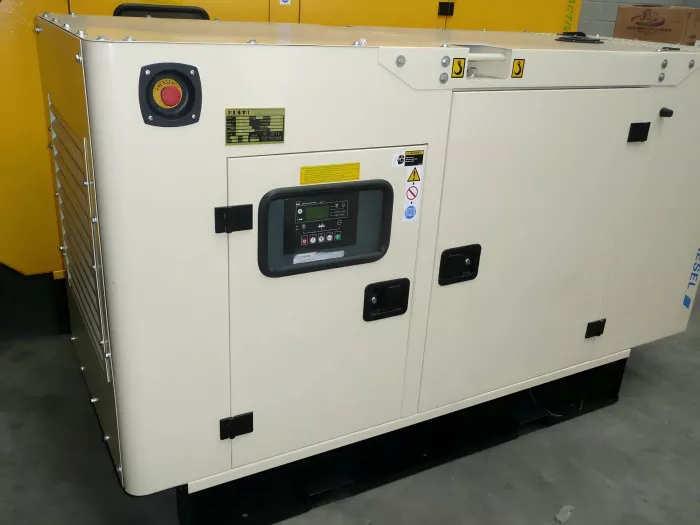Diesel generators are well-known for their reliability and efficiency, making them a popular choice for various applications, including residential power needs. This guide delves into whether a diesel generator is suitable for powering an entire house, exploring its capabilities, benefits, and limitations.
1. Understanding Diesel Generators
1.1 What is a Diesel Generator?
A diesel generator converts diesel fuel into electrical energy through a diesel engine and an alternator. It is known for its durability and high fuel efficiency, providing a consistent power output. Diesel generators are commonly used for backup power and as primary energy sources in various settings.
1.2 Components of a Diesel Generator
Diesel Engine: Burns diesel fuel to create mechanical energy, driving the alternator.
Alternator: Converts mechanical energy from the engine into electrical energy.
Fuel System: Includes the fuel tank, pump, and filters necessary for delivering diesel fuel to the engine.
Cooling System: Maintains the engine at an optimal operating temperature.
Control Panel: Allows users to monitor and control the generator’s performance.
2. Powering a House with a Diesel Generator
2.1 Assessing Household Power Needs
To determine if a diesel generator can power a house, it’s essential to assess the household’s power requirements. This involves calculating the total wattage of all electrical appliances and systems in the home, including:
Lighting: Both standard and LED bulbs.
Heating and Cooling Systems: Central heating, air conditioning, and other climate control systems.
Kitchen Appliances: Refrigerators, ovens, dishwashers, and microwaves.
Electronics: Computers, televisions, and home entertainment systems.
Other Appliances: Washing machines, dryers, and other household devices.
2.2 Generator Capacity and Sizing
Diesel generators come in various sizes, typically rated in kilowatts (kW) or megawatts (MW). To effectively power a house, the generator’s capacity must meet or exceed the total power requirements of the home. Key considerations include:
Peak Power Requirements: The maximum power needed during periods of high demand.
Continuous Power Requirements: The amount of power needed to run essential appliances and systems continuously.
Choosing a generator with adequate capacity ensures it can handle the household’s energy needs without overloading.
2.3 Types of Diesel Generators
Portable Generators: Smaller, more affordable options suitable for temporary or emergency use. Typically used for powering essential appliances rather than an entire house.
Standby Generators: Larger units designed for continuous or backup power, often installed permanently and capable of supporting an entire house or multiple homes.
3. Advantages of Using Diesel Generators for Residential Power
3.1 Reliability and Durability
Diesel generators are renowned for their reliability and longevity. Designed to operate in demanding conditions, they provide continuous power for extended periods, making them suitable for homes in areas with frequent power outages or unreliable electrical infrastructure.
3.2 Fuel Efficiency
Diesel fuel has a high energy density, meaning diesel generators are often more fuel-efficient compared to other types of generators. They provide a significant amount of power per unit of fuel, making them a cost-effective option for long-term use.
3.3 Robust Performance
Diesel generators handle heavy loads and can power multiple appliances and systems simultaneously. Their ability to deliver consistent power makes them a reliable choice for meeting the diverse energy needs of a household.
see also: Top 4 Quietest Diesel Generator
4. Limitations and Considerations
4.1 Noise Levels
Diesel generators can be noisy, which may be a concern in residential areas. The noise generated by the engine and exhaust system can be disruptive. Solutions include installing soundproof enclosures or choosing quieter models.
4.2 Maintenance Requirements
Regular maintenance is crucial for ensuring efficient operation and longevity. Maintenance tasks include checking and changing the oil, cleaning or replacing filters, and inspecting the fuel system. Neglecting maintenance can lead to performance issues and costly repairs.
4.3 Fuel Storage and Supply
Proper fuel storage is essential for safe and efficient operation. Diesel fuel must be stored in appropriate containers and protected from contamination. Maintaining an adequate supply of fuel is necessary for uninterrupted power, especially during extended outages.
4.4 Initial Cost and Installation
The initial cost of purchasing and installing a diesel generator can be significant, particularly for larger units capable of powering an entire house. Installation costs include not only the generator itself but also any necessary electrical work, fuel storage solutions, and soundproofing measures.
5. Installation and Operation
5.1 Choosing the Right Generator
Selecting the appropriate diesel generator involves considering factors such as power requirements, noise levels, fuel efficiency, and budget. Consulting with a professional generator dealer or installer can help ensure that the chosen generator meets the specific needs of the household.
5.2 Professional Installation
Professional installation is recommended to ensure the generator is properly set up and integrated with the home’s electrical system. A qualified electrician can handle installation, including connecting the generator to the home’s electrical panel, setting up transfer switches, and ensuring compliance with local codes and regulations.
5.3 Operating the Generator
Proper operation and maintenance are essential for optimal performance. This includes regularly checking fuel levels, monitoring performance through the control panel, and adhering to the manufacturer’s maintenance recommendations.
Conclusion
Diesel generators offer a reliable and robust solution for powering a house, especially in areas with unreliable electrical infrastructure or frequent power outages. With their high fuel efficiency, durability, and ability to handle heavy loads, diesel generators are well-suited to meet the energy needs of a household. However, considerations such as noise levels, maintenance requirements, fuel storage, and initial costs must be addressed to ensure successful operation. By carefully assessing power needs, choosing the right generator, and following proper installation and maintenance procedures, homeowners can benefit from the consistent and dependable power provided by diesel generators.
Related topics:

